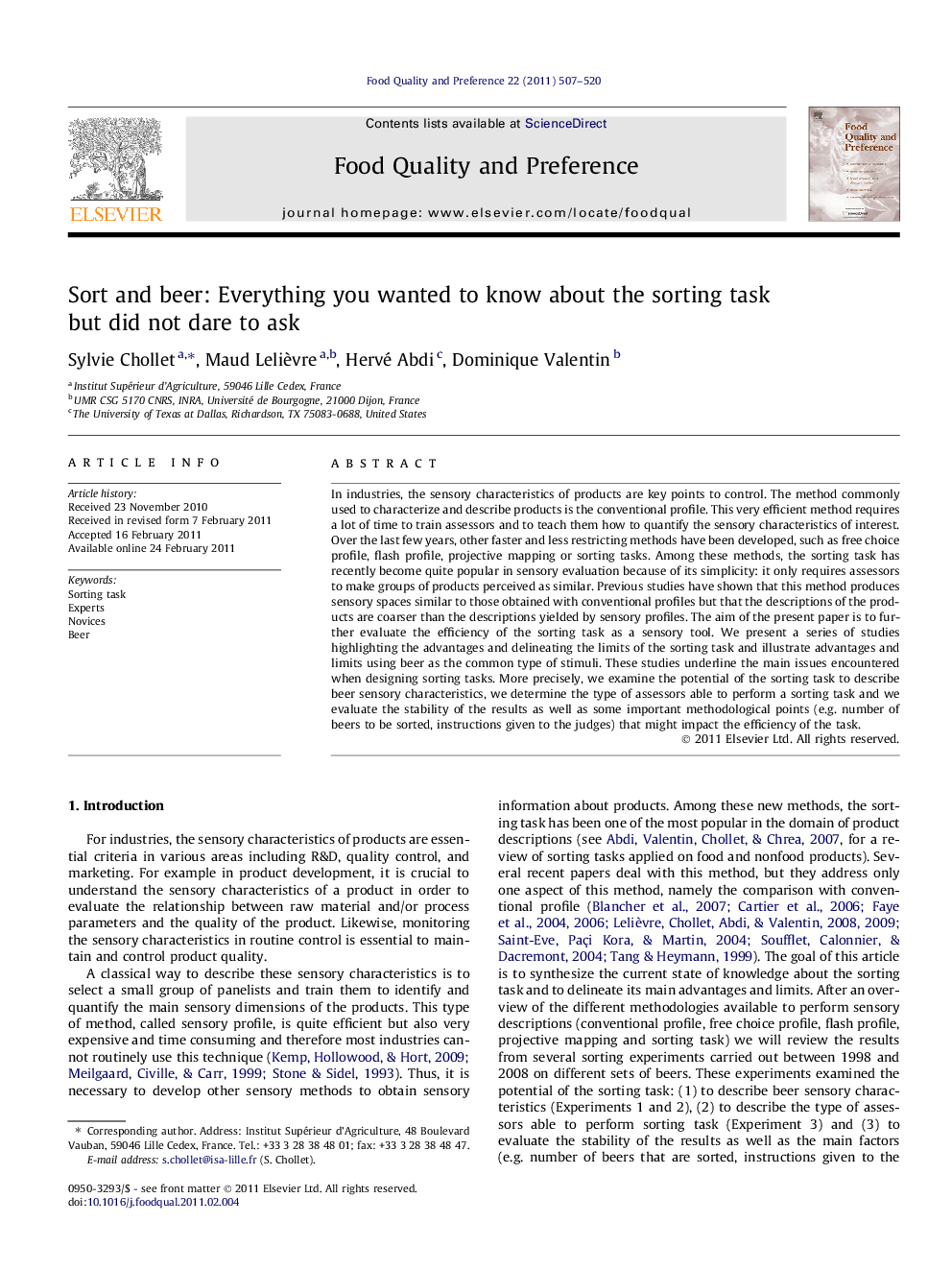| کد مقاله | کد نشریه | سال انتشار | مقاله انگلیسی | نسخه تمام متن |
|---|---|---|---|---|
| 4317713 | 1290612 | 2011 | 14 صفحه PDF | دانلود رایگان |

In industries, the sensory characteristics of products are key points to control. The method commonly used to characterize and describe products is the conventional profile. This very efficient method requires a lot of time to train assessors and to teach them how to quantify the sensory characteristics of interest. Over the last few years, other faster and less restricting methods have been developed, such as free choice profile, flash profile, projective mapping or sorting tasks. Among these methods, the sorting task has recently become quite popular in sensory evaluation because of its simplicity: it only requires assessors to make groups of products perceived as similar. Previous studies have shown that this method produces sensory spaces similar to those obtained with conventional profiles but that the descriptions of the products are coarser than the descriptions yielded by sensory profiles. The aim of the present paper is to further evaluate the efficiency of the sorting task as a sensory tool. We present a series of studies highlighting the advantages and delineating the limits of the sorting task and illustrate advantages and limits using beer as the common type of stimuli. These studies underline the main issues encountered when designing sorting tasks. More precisely, we examine the potential of the sorting task to describe beer sensory characteristics, we determine the type of assessors able to perform a sorting task and we evaluate the stability of the results as well as some important methodological points (e.g. number of beers to be sorted, instructions given to the judges) that might impact the efficiency of the task.
Research highlights
► We present the current state of knowledge on sorting tasks, using beers as stimuli.
► The sorting task gives satisfactory results with both trained and untrained assessors.
► The sorting task is a robust tool even when used with as few as 20 assessors.
► Discrimination power is limited to stimuli sets containing no more than 20 beers.
► Descriptions of the sorted groups are not precise and might be difficult to interpret.
Journal: Food Quality and Preference - Volume 22, Issue 6, September 2011, Pages 507–520